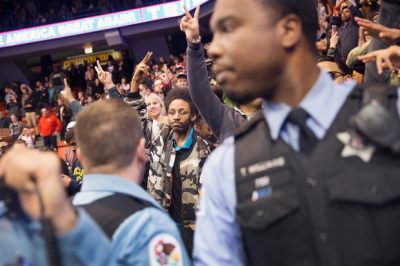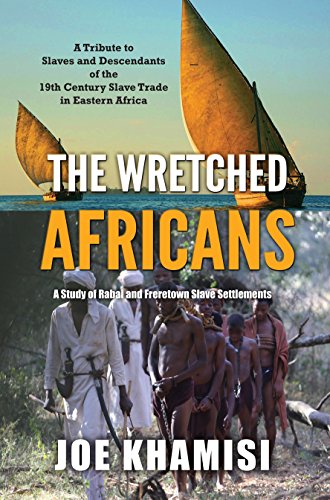By
Joe Khamisi
Anyone who lives in this free-flowing information planet knows the American presidential polls will be held this year, Tuesday, 8 November. They also know that primaries have been going on for the whole of this year with the two main political parties, the Republican and Democratic parties, battling to attract the attention of voters.
As the primaries come to an end in Washington DC next week, two individuals have emerged as the presumptive nominees: billionaire Donald Trump of the Republican Party; and career politician Hillary Clinton, who this week ended a long nomination process by trouncing the tough-talking socialist revolutionary, Bernie Sanders.
As a foreigner watching the campaign from inside the country, I have seen some aspects in the American primaries that are similar to what I have experienced in African countries.
It is quite rare in American election campaigns to hear words such as “rigging” and “violence.” Yet these are references I heard over and over again from both sides of the political divide this year. In Africa, theft of votes is a common hallmark of polls. Electoral officials casually and routinely connive with elements in the ruling class, among them crooked police and judiciary officials, to rig elections; numbers are cooked at tallying centers; and votes are openly stolen from winners and stuffed in ballot boxes of potential losers. But to hear candidates in America – the most democratic country in the world – complaining of primary elections being rigged; of some aspects of party rules being flawed in a way that gives some a competitive edge over others; and of votes being tampered with – is rather ticklish. And to see people pushing and shoving each other, fists landing with a thud, in the name of one’s favorite candidate, is hilarious.
Not used to such ignoble behavior, the Americans gaze at their television monitors in shock. What these primaries have done is to expose the underbelly of a country that prides itself of a flawless electoral system; one that sends observers to supervise elections across the globe; and one that is quick to criticize polls in other countries.
For those who know, this comes as a comic relief to African politicians; knowing that things do go wrong in developed democracies. Of course, one cannot compare electoral practices in the US to those in Africa.
The electoral systems in the US are still the best and most democratic in the world, and always produce results that meet the wishes of the American people. But this has not always been the case. In 1876 – one hundred years after the American independence – elections were stolen in broad daylight. In the presidential elections that year, a Democratic party candidate, Samuel J. Tilden, won the presidential elections by a large margin. Yet it was his opponent, Republican governor Rutherford B. Hayes, who was declared the winner. For five months the Americans did not know who their next president would be, a situation that almost triggered a civil war. There were also accusations of election fixing and vote stealing. At the end, Hayes was confirmed president and Americans happily went about their daily activities. No demonstrations, no burning of churches and no killings of innocent people.
This is one lesson we in Africa must learn to avoid violence, something that has happened in many countries including my own: Kenya. And talking about Kenya, there is hope this week that the two political protagonists, the ruling Jubilee and the opposition, CORD, will finally meet to discuss the contentious issues surrounding the Independent Electoral and Boundary Commission (IEBC). Already the dispute has claimed a number of lives. No more should be lost. My hope now is that all parties will approach the talks with an open mind.
Joe Khamisi
Joe Khamisi is a former journalist, diplomat and Member of Parliament. He is also the Author of ‘Politics of Betrayal:Diary of a Kenyan Legislator‘, a political memoir about the situation in Kenya between 2001, when the ruling party of President Daniel Arap Moi, the Kenya African National Union (KANU), merged with Raila Odinga’s National Development Party.
The book also narrates cases of corruption in Parliament and in the Media and records Senator Obama’s visit to Kenya in 2006. As a friend of Barack Obama Senior, the author also remembers the times and tragedies of the American-educated economist.
Joe Khamisi’s second book, a biography, ‘Dash Before Dusk’ is also now on sale.
Joe’s latest book is ‘The Wretched Africans: A Study of Rabai and Freretown Slave Settlements‘ which has recently been published and is now available to purchase.






No Comments Yet!
You can be first to comment this post!